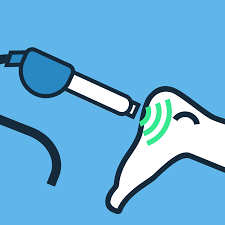Shockwave therapy, also known as Extracorporeal Shock Wave Therapy (ESWT), is a medical

treatment that uses shockwaves to stimulate healing and reduce pain. Shockwaves are high-energy sound waves that can travel through the body and interact with tissues. The therapy has been used in various medical fields, including orthopedics, urology, and rehabilitation.
In the context of musculoskeletal conditions, such as tendonitis, plantar fasciitis, and calcific shoulder tendinopathy, shockwave therapy is often employed. Here’s how it typically works:
1. Application of Shockwaves: During a shockwave therapy session, a device delivers shockwaves to the affected area. This can be done using a handheld device that the healthcare provider presses against the skin.
2. Mechanism of Action: The exact mechanisms by which shockwave therapy works are not fully understood, but it is believed to have several effects. Shockwaves may stimulate blood flow to the affected area, enhance the formation of blood vessels (angiogenesis), and promote the body’s natural healing processes.
3. Pain Reduction: Shockwave therapy is thought to have analgesic (pain-relieving) effects. It may help reduce pain by interfering with pain signals and promoting the release of substances that inhibit pain.
4. Collagen Production: The therapy may also stimulate the production of collagen, a protein that is crucial for the strength and elasticity of connective tissues like tendons and ligaments.
5. Inflammation Reduction: Shockwave therapy may have anti-inflammatory effects, helping to decrease inflammation in the treated area.
6. Cellular Effects: At the cellular level, shockwaves may influence cell behavior and metabolism, leading to tissue regeneration and repair.
Shockwave therapy is considered a non-invasive treatment option, and it is often used when more conservative treatments (such as physical therapy, medications, or rest) have not provided sufficient relief. The number of sessions needed can vary depending on the specific condition being treated and the individual’s response to the therapy.
It’s important to note that while shockwave therapy has shown promise for certain conditions, it may not be suitable for everyone, and potential risks and benefits should be discussed with a healthcare professional before undergoing the treatment.